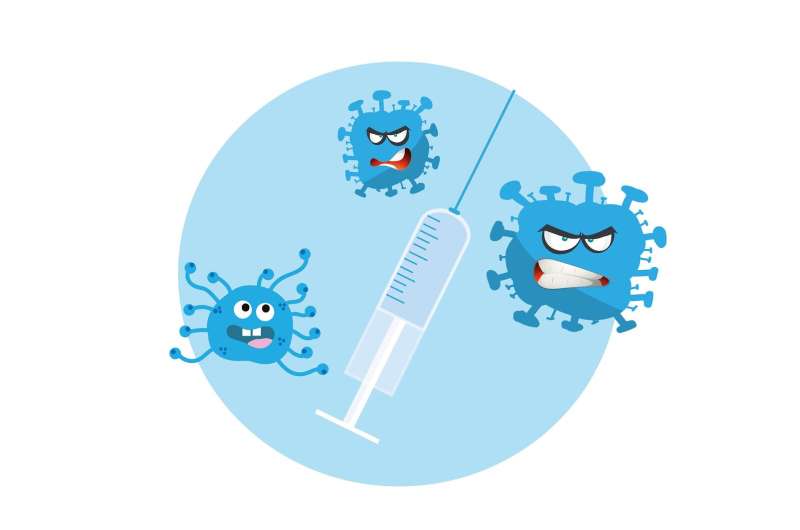
Authorities in the EU and Britain on Friday ramped up COVID-19 vaccine announcements as they tried to dampen criticism over the slow pace of jabs amid stubbornly high infection figures.
European Commission chief Ursula von der Leyen said an existing deal with BioNTech/Pfizer has been extended to double the number of doses supplied to the bloc to 600 million.
The EU’s medicines regulator also approved squeezing six doses out of every BioNTech/Pfizer vial instead of five, potentially increasing the number of injections on offer by 20 percent.
At the same time, BioNTech said early data showed its product was effective against coronavirus variants dominating in the UK and South Africa that are believed to be highly contagious.
In Britain—Europe’s worst-hit country after Russia—the Moderna vaccine was added to the inoculation drive alongside the BioNTech/Pfizer and Oxford/AstraZeneca ones already authorised.
Von der Leyen admitted a “bumpy road” at the start of the vaccine roll-out in the EU’s 27 nations and spoke of more “difficult months” ahead to get it on track.
But overall, she insisted, her Commission’s strategy to snap up orders last year for half a dozen vaccines unproven at the time had been the right one, done in the teeth of fierce global competition.
As a result, there were enough doses secured of the two vaccines currently authorised in the bloc, the ones from BioNTech/Pfizer and Moderna, “to vaccinate 380 million Europeans, and this is more than 80 percent of the European population”, she said.
And, she added, if all the other vaccine candidates are also approved, the bloc could eventually have 2.3 billion doses on hand—enough for every EU resident, with the extra going to the Union’s poorer neighbours.
Germany goes it alone
The other candidate vaccines are from Oxford/AstraZeneca, Johnson & Johnson, Sanofi/GSK and Curevac. Negotiations are ongoing for one from Novavax.
The European Medicines Agency said a decision on authorising the Oxford/AstraZeneca vaccine could be made by the end of this month.
Yet right now the EU has only 75 million doses of the BioNTech/Pfizer vaccine, with the rest starting to be delivered sometime between April and June. Authorisation for the 160 million doses from Moderna was given on Wednesday.
The deal extension is for a firm 200 million extra doses plus an option for 100 million more.
In comparison, the United States has secured a total 200 million doses from BioNTech/Pfizer and the same amount of Moderna vaccine doses.
Embarrassingly for von der Leyen, her home country Germany has gone outside the Commission’s collective purchase scheme, with national media reporting official frustration at the sluggish vaccination rate.
The German health ministry said it has bought an option for an additional 30 million doses directly from BioNTech/Pfizer and 20 million from Curevac, and is negotiating with Moderna.
Von der Leyen said the Commission’s purchase arrangement was “legally binding” and “no parallel negotiations, no parallel contracts” were permitted by individual member states.
Her spokesman Eric Mamer repeatedly dodged questions about that apparent breach by Berlin and told journalists: “We are certainly not going to discuss any possible legal steps or whatever.”
UK at breaking point
Britain, no longer an EU member, started its immunisation programme well ahead of the European Union. There was scepticism, though, that it would reach its target of inoculating 15 million people by mid-February.
Its announcement on the Moderna vaccine on Friday meant 17 million doses of that jab would be delivered in the coming months.
But the country is in “a sprint,” Prime Minister Boris Johnson has said. Hospitals in England are at breaking point from skyrocketing COVID-19 infections.
Both the BioNTech/Pfizer and Moderna vaccines use a technique called messenger RNA, or mRNA. Unlike traditional vaccines that inject an inactivated virus, they teach the body’s cells how to make spike proteins to build defences.
Source: Read Full Article
